Best of 2016
written by Chris Gratien
26 December 2016
During 2016, we released 70 interviews and over 50 hours of audio. In turn, our listeners logged more than 500,000 plays and downloads through SoundCloud and our RSS Feed. Thanks to our contributors and audience, 2016 was a year of unprecedented website traffic. Seven of the ten most popular blog posts in the history of our site were released over the past year, and our Facebook following has grown to around 27,000 users.
With so much activity during 2016, we thought it might be helpful to review this year's releases by showcasing some of the most popular interviews and offering our own picks of what deserves a second look.
| "Yeni-Djama (i.e., Yeni Cami) by moonlight, Constantinople, Turkey," c1890-1900 from Library of Congress |
Popular Podcasts
by number of pageviews
The best gauge of general popularity for our episodes among our audience is the amount of traffic a particular podcast blog post attracts. A list of the most popular pages on our blog for 2016 is as follows:
1. Compiling Knowledge in the Medieval Islamic World, Elias Muhanna
2. The Ottoman Empire in the Age of Revolutions, Ali Yaycioglu
3. Nationality and Citizenship in Mandate Palestine, Lauren Banko
4. Osmanlı İstanbul’unda Gece ve Sokaklar, Nurçin İleri
5. African Diaspora in Ottoman Izmir, Michael Ferguson
6. La prostitution en Algérie à l’époque Ottomane et française, Aurelie Perrier
7. Architecture and Late Ottoman Historical Imagination, Ahmet Ersoy
8. Colonialism and the Politics of Identity in Morocco, Jonathan Wyrtzen
9. Narratives of Slavery in Late Ottoman Egypt, Eve Troutt Powell
10. Armenian Photography in Ottoman Anatolia, Armen Marsoobian
Most Played and Downloaded
on SoundCloud
Plays and downloads on SoundCloud offer another window onto which episodes earned the biggest response from our audience. These data are different in a few important ways. While blog traffic for a particular post trails off to a small volume after about a week, plays and downloads through the RSS feed continue for a much longer period after a podcast has been released. Subscription means that initial downloads for each episode are more or less similar, but over time, some episodes receive a much larger volume of traffic than others. This also means that older episodes will tend to have higher numbers of plays and downloads than very recent episodes, even those which are most popular. Bearing these factors in mind, here are the ten most played and downloaded episodes on our SoundCloud page during 2016.
1. Ecevit, Art, and Politics in 1950s Turkey, Sarah-Neel Smith
2. Caliphate: an idea throughout history, Hugh Kennedy
3. Osmanlı İstanbul’unda Gece ve Sokaklar, Nurçin İleri
4. Ottoman Commentaries on Islamic Philosophy, Eric van Lit
5. Osmanlı'da Vergi Siyaseti (1839-1908), Nadir Özbek
6. Yemeğin Politik Tarihi, Burak Onaran
7. Neo-Ottoman Architecture and the Transnational Mosque, Kishwar Rizvi
8. Mapping the Medieval World in Islamic Cartography, Karen Pinto
9. Economics and Justice in the Ottoman Courts, Boğaç Ergene
10. African Diaspora in Ottoman Izmir, Michael Ferguson
Editor's Picks
While the large response of our audience to the episodes above attests to the quality of these podcasts and the importance of their topics, we are also proud of all the other great episodes we released over the course of 2016. That's why we've compiled this list of "editor's picks" made by our own Ottoman History Podcast production team. A number of our team members were asked to select one or two podcasts that stood out for them in 2016 and write a few sentences as to why, making sure not to pick an episode in which they themselves appeared. The team of selectors were not aware of each other's answers. Any episode that appeared in 2016, including those listed above, qualified for potential selection.
If you'd like to see another episode included on this list or give your own opinion, leave a comment with a sentence about your favorite episode and why you enjoyed it. We will add listener feedback to the page.
The List
organized in order of the guest's period of focus from medieval to modern
Caliphate: an idea throughout history, Hugh Kennedy
Compiling Knowledge in the Medieval Islamic World, Elias Muhanna
Foodways in Medieval Anatolia, Nicolas Trépanier
Venetian Physicians in the Ottoman Empire, Valentina Pugliano
Gender, Passion, and Politics in the Christian Middle East, Akram Khater
Nouveau Literacy in the 18th Century Levant, Dana Sajdi
Narratives of Slavery in Late Ottoman Egypt, Eve Troutt Powell
The Ottoman Red Sea, Alexis Wick
Architecture and Late Ottoman Historical Imagination, Ahmet Ersoy
Literacies and the Emergence of Modern Egypt, Hoda Yousef
AUB and the British Mandates, Hilary Falb Kalisman
Both Citizens and Strangers in Post-1948 Israel, Shira Robinson
Neo-Ottoman Architecture and the Transnational Mosque, Kishwar Rizvi
Morocco's New Migrant Class, Isabella Alexander
Caliphate: an idea throughout history
with Hugh Kennedy hosted by Taylan Güngör
audio editing by Taylan Güngör
"Taylan's conversation with Hugh Kennedy about the history of the Caliphate gives nuance to a much discussed but often misrepresented concept in the history of the Islamic world. This episode was able to synthesize centuries of history, demonstrating the continued refashioning of the caliphate as a political idea while highlighting the enduring salience of the notion itself. Tackling such an expansive and urgent topic in a short conversation is a challenging task that Hugh and Taylan handled very well in this interview." - Chris Gratien, Editor in Chief
 |
| Taylan Güngör and Hugh Kennedy at SOAS Radio |
Compiling Knowledge in the Medieval Islamic World
with Elias Muhanna hosted by Chris Gratien and Zoe Griffith
readings by Nora Lessersohn
audio editing by Chris Gratien
"'What’s worth knowing?' It’s one of the vital questions in life, and historians can use the question as a lens to gain an understanding of past cultures and societies. In this podcast, the always charming Elias Muhanna answers the question through the eyes of al-Nuwayri, an intellectually frustrated bureaucrat from Mamluk Egypt who wrote a 21-volume compendium cum encyclopedia in the fourteenth century. Elias recently published a selection of choice passages from the book and listeners will get a taste of the text itself as well some insight into the structure of knowledge in the late medieval Middle East." - Nir Shafir, Managing Editor and curator of History of Science series
"The production on this episode is really great. It incorporates amazing music (is there any way to get access to this recording in full? i love it!), many voices, and hilarious anecdotes. The pacing is perfect--none of the segments last too long. Also, this is clearly an amazing text that I knew nothing about but that helps us to understand an important genre in Islamic history. Elias's episode will be of interest to listeners from the most casual (see the panther and the mice!) to scholars interested in adab, literature, knowledge, science, translation, bureaucracy, and the like." - Susanna Ferguson, Managing Editor and co-curator of Women, Gender, and Sex series
 |
| Snippet of Shihāb al-Dīn al-Nuwayrī, Nihāyat al-arab fī funūn al-adab (Leiden MS Or. 273) |
Foodways in Medieval Anatolia
with Nicolas Trépanier hosted by Nir Shafir and Polina Ivanova
audio editing by Chris Gratien
"Food and its production, consumption and distribution are central to understanding life in Medieval Anatolia. Beyond the obvious curiosity of what can characterise daily food and drink, wine, yogurt, and bread with stones, the study has wide ranging social, political and economic repercussions. This vivid and unquestionably engaging podcast explores topics such as the competing markets for the production of wine -- that is the consumption of grapes -- the trading and taxing of food, and the idea of having a daily main meal itself." - Taylan Güngör, Media Specialist and frequent host
| Close-up of threshing sledge, courtesy of Nicolas Trépanier |
Venetian Physicians in the Ottoman Empire
with Valentina Pugliano hosted by Nir Shafir
audio editing by Onur Engin
"This interview with Valentina Pugliano explores a well-trod topic -- circulation of medical knowledge between the East and West of the Mediterranean -- in a concrete, practical way by exploring the institutions in which foreign physicians lived in Ottoman cities. In detail, she follows a few medical practitioners who traveled from Venice to the Ottoman Empire, their lifestyle and customers therein, and their fate upon return. It is truly an important addition to the broader. historiography on history of medicine in the Islamic world." - Shireen Hamza, Social Media Manager
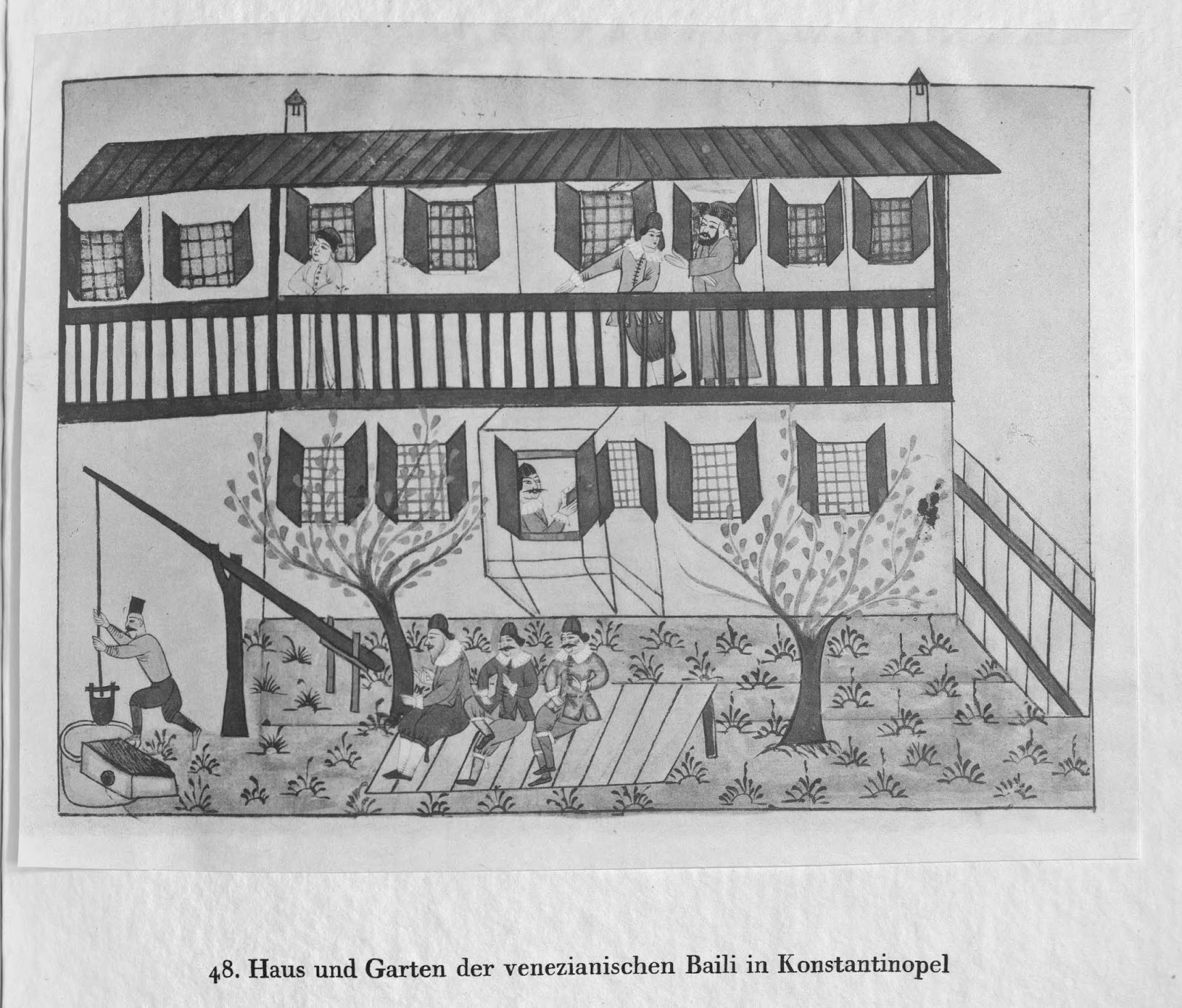 |
| Taeschner, Franz. Alt-Stambuler Hof- und Volksleben: ein türkische Miniaturenalbum aus dem 17. Jahrhundert. Hannover: Orient-Buchhandlung Heinz Lafaire, 1925, Plate 48 |
Gender, Politics, and Passion in the Christian Middle East
with Akram Khater hosted by Graham Pitts
audio editing by Chris Gratien
"My favorite episode of 2016 might be Akram Khater's interview about Hindiyya al-'Ujaimi, an 18th century Maronite woman who challenged both religious elites in Mount Lebanon and even the Vatican itself during an understudied and transformative period in Middle East history. Hindiyya's personal story touches on many important and ignored themes in the history of the Ottoman world, and I like how Graham's questions highlight the book's historiographical interventions, allowing his guest to move quickly through a very compelling narrative." - Chris Gratien, Editor in Chief
Nouveau Literacy in the 18th Century Levant
with Dana Sajdi hosted by Chris Gratien and Shireen Hamza
audio editing by Chris Gratien and Shireen Hamza
"I was already a huge fan of Dana Sajdi's work, but this podcast provides a superb accompaniment to her 2013 book of the same title, developing and contextualising many of the ideas of the book in an interesting and illuminating way. I particularly enjoyed her readings of some of the selections from ibn Budayr's text, which provided some very useful illustrations for the concepts under discussion." - Michael Talbot, frequent host
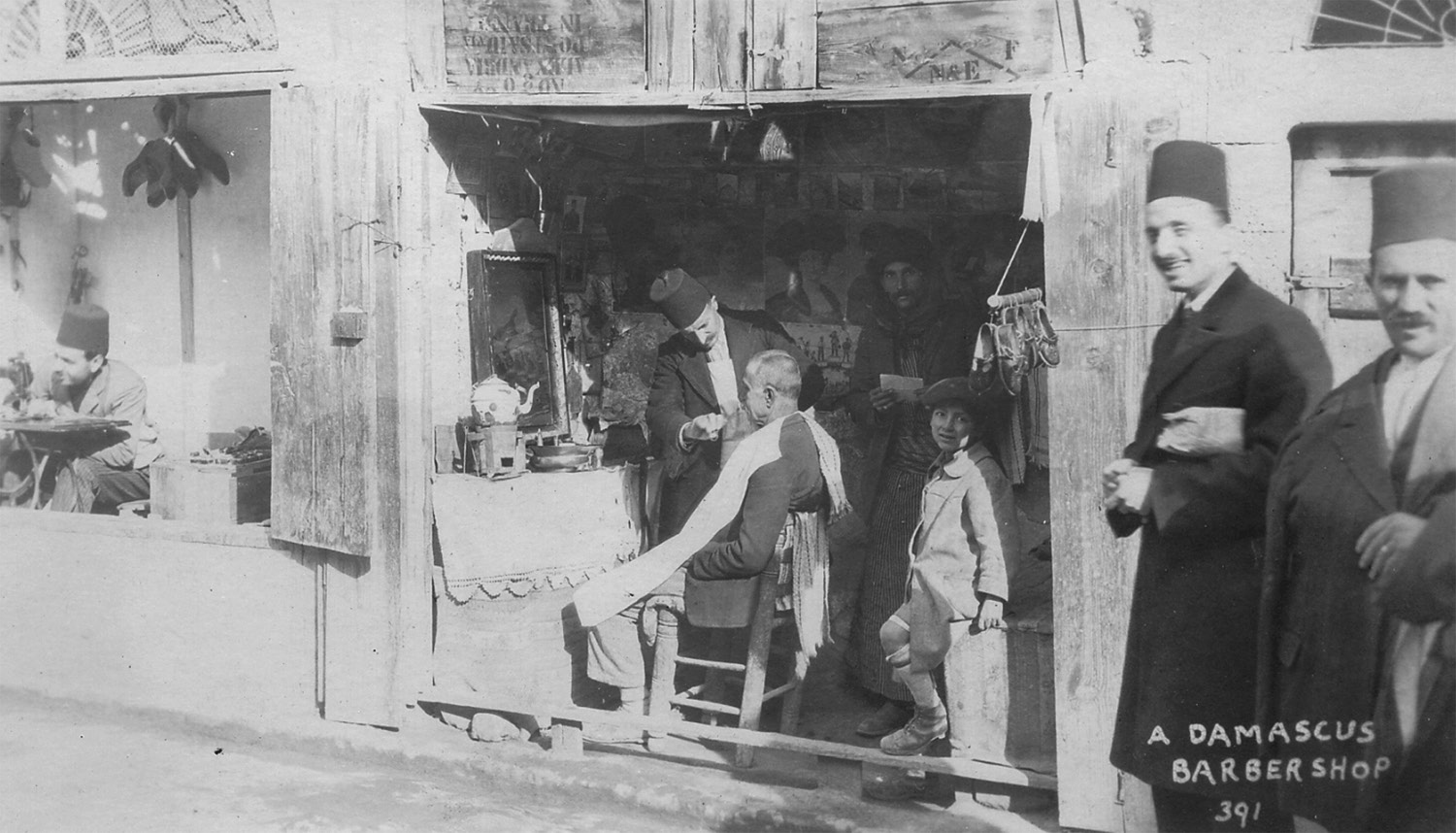 |
| A Damascus Barbershop, circa 1930s (Source: mideastimage.com; courtesy of Camille Alexandre Otrakji) |
Narratives of Slavery in Late Ottoman Egypt
with Eve Troutt Powell hosted by Susanna Ferguson
audio editing by Chris Gratien
"Professor Eve Troutt Powell is both a genius, and a Genius (she won a MacArthur in 2003). In this conversation, her brilliance is on display as she discusses the subject of her scholarly work - slavery and race in Egypt and Sudan. While focusing on these places and their particularities, however, she also explains how the history of race in America nevertheless casts a shadow all the way to Cairo, which manifested itself both in historical connections (i.e., Thavolia Glymph's work on the recruitment of American Civil War generals to supervise Sudanese slaves and Egyptian fellah in the cotton fields of the Nile Delta) and in meta-historical connections (i.e., the overwhelming response to an African-American woman studying this topic being an insistence that race is different in Egypt than in America). In closing, Troutt Powell offers an intriguing link between the history of enslavement and the emergence of feminism in the eastern Mediterranean. In a way evocative of the work of Susan Buck-Morss in Hegel, Haiti, and Universal History, Troutt Powell asks how the history of enslaved peoples both from the Caucasus and Sudan converged on an intimate level in the life of none other than Huda Sha'arawi, while also opening up the question of how such experiences with enslaved people may have informed feminist thinking and conceptual frameworks. So go listen to it already!" - Sam Dolbee, Editor of Tozsuz Evrak blog
 |
| In the slave market of Cairo / David Roberts, Louis Haghe (Source: Library of Congress) |
The Ottoman Red Sea
with Alexis Wick hosted by Susanna Ferguson
audio editing by Onur Engin
"My favorite episodes this year all took us to the geographic margins of the Ottoman world. Alexis Wick and Susanna Ferguson really got at both what such an entity as the Ottoman Red Sea looked like. And, in a broader way, they picked apart how we make sense out of historical, geographic space -- more difficult to do than it might seem at first." - Graham Cornwell, Editor of tajine series
"This is a lively conversation that nimbly incorporates a view of an understudied space with a penetrating look at the assumptions and elisions that have gone into writing Ottoman history. While the Red Sea was an important arena of trade, pilgrimage, and Ottoman governance in its own right, this episode also asks poignant questions about how the seas have shaped understandings of modernity, how archives shape the writing of history, and how empires have viewed and created space." - Zoe Griffith, co-curator of Islamic Law series
"This is a lively conversation that nimbly incorporates a view of an understudied space with a penetrating look at the assumptions and elisions that have gone into writing Ottoman history. While the Red Sea was an important arena of trade, pilgrimage, and Ottoman governance in its own right, this episode also asks poignant questions about how the seas have shaped understandings of modernity, how archives shape the writing of history, and how empires have viewed and created space." - Zoe Griffith, co-curator of Islamic Law series
 |
| Source: Başbakanlık Osmanlı Arşivi, A-DVN-MSR-MHM.d, no. 9 |
Architecture and Late Ottoman Historical Imagination
with Ahmet Ersoy hosted by Susanna Ferguson
audio editing by Onur Engin
"I was very impressed by Suzie Ferguson’s interview with Ahmet Ersoy on his latest study about the history of architecture in the late Ottoman Empire. This podcast is well-structured and flowing. Suzie does a very good job in helping Ahmet to navigate through the main focus as well as complex arguments of his study with thoughtful questions. Needless to mention, it is also Ahmet Ersoy’s expertise, the quality of his research, and his ability to articulate the most challenging historiographical debates within architectural/intellectual history that renders this podcast one of the most enjoyable in the OHP catalog." - Seçil Yılmaz, co-curator of Women, Gender, and Sex series
 |
| Taksim Artillery Barracks, from Pars Tüğlacı, The Role of the Balian Family in Ottoman Architecture (Istanbul, 1990) |
Literacies and the Emergence of Modern Egypt
with Hoda Yousef hosted by Graham Pitts
audio editing by Chris Gratien
"I listened to this episode with great interest. Graham framed the discussion well with a short and interesting opening. Aside from this, Graham helped Hoda to open up the most important aspects of her research, at times challenging the ideas in the book. This style of conversation enriched the content and took the podcast beyond a simple book talk. Reading a short excerpt from the book is not something that I am a fan of normally, but the excerpt that Hoda read was very engaging and Graham was very successful in bringing the listeners back into the conversation with informed questions after that. Overall, I enjoyed the flow and the content of this podcast very much." - Seçil Yılmaz, co-curator of Women, Gender, and Sex series
AUB and the British Mandates
with Hilary Falb Kalisman hosted by Huma Gupta, Chris Gratien, and Nir Shafir
audio editing by Chris Gratien
"Hilary Falb Kalisman explained her research so clearly and eloquently and draws such important conclusions from that Mandatory context of the relationship in practice between education and the development of a new bureaucratic elite. This is a podcast that, thanks to the flowing conversation and fascinating content, I will be integrating with my teaching, as well as listening to again in the future." - Michael Talbot, frequent host
| "Students at A.U.B. [i.e., American University of Beirut]", LC-M32- 14313 [P&P], Matson (G. Eric and Edith) Photograph Collection, Library of Congress Prints and Photographs Division Washington, D.C. 20540 USA |
Both Citizens and Strangers in Post-1948 Israel
with Shira Robinson hosted by Graham Pitts
audio editing by Chris Gratien
"Another Graham Pitts special! This is a fascinating period in Palestinian-Israeli history that I also did not know a lot about, nor had I previously thought to consider it significant. The episode really gets at the impact of her work and the critical questions it raises about liberalism, state formation, and exclusion." - Susanna Ferguson, Managing Editor and co-curator of Women, Gender, and Sex series
Neo-Ottoman Architecture and the Transnational Mosque
with Kishwar Rizvi hosted by Chris Gratien
audio editing by Chris Gratien
"I thought it was a smart and engaging discussion about a relevant topic, a phenomenon that is not only taking place in Turkey but around the world, and that is the currency of Ottoman architecture to different communities and nation states. That, and it features one of my all time favorites, the Sabancı Mosque in Adana!" - Emily Neumeier, Content Coordinator and co-curator of The Visual Past series
 |
| Interior of Mohammad Al-Amin Mosque, Beirut (Photo credit: Kishwar Rizvi) |
Morocco's New Migrant Class
with Isabella Alexander hosted by Graham Cornwell
audio editing by Chris Gratien
"This interview with Isabella Alexander explores the current realities of sub-Saharan African migrants in Morocco and details the specific experiences of the migrants through the metaphor of 'hrig' or burning. It also connects their situation to the changing migration patterns in the Mediterranean and the world. A current and urgent topic is herein approached with clarity as well as humility and compassion." - Shireen Hamza, Social Media Manager


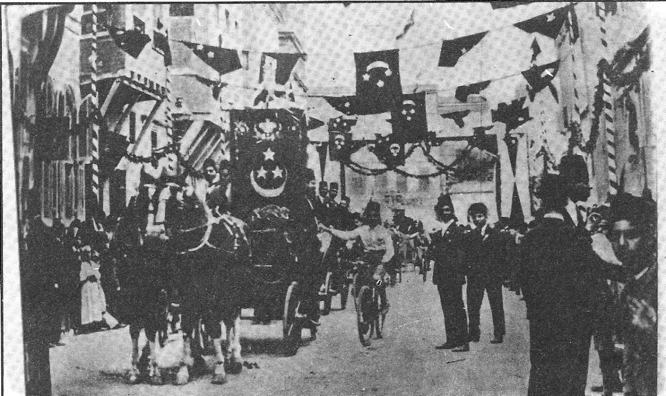



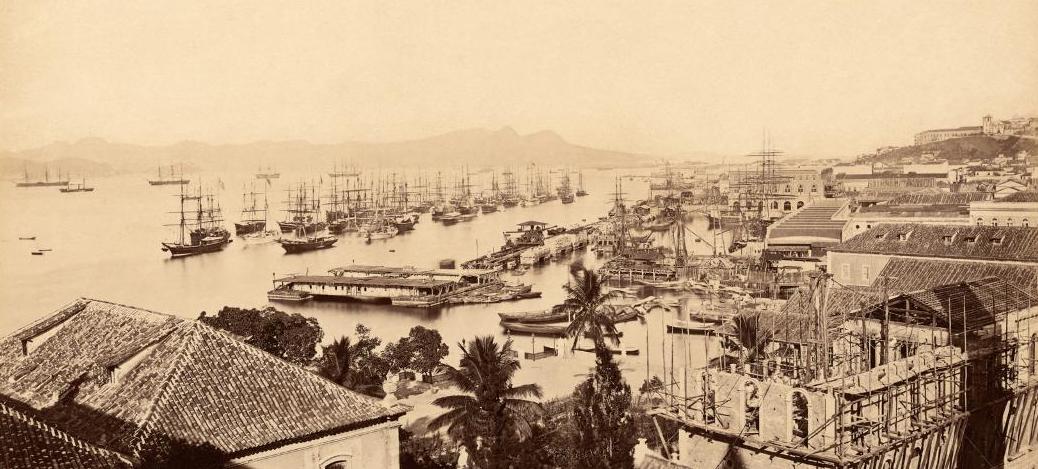

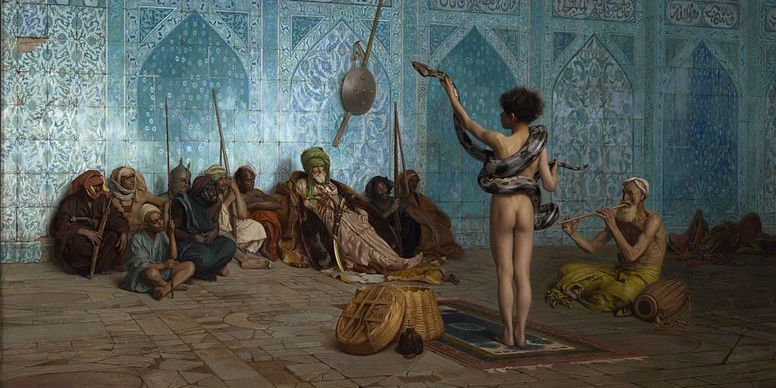
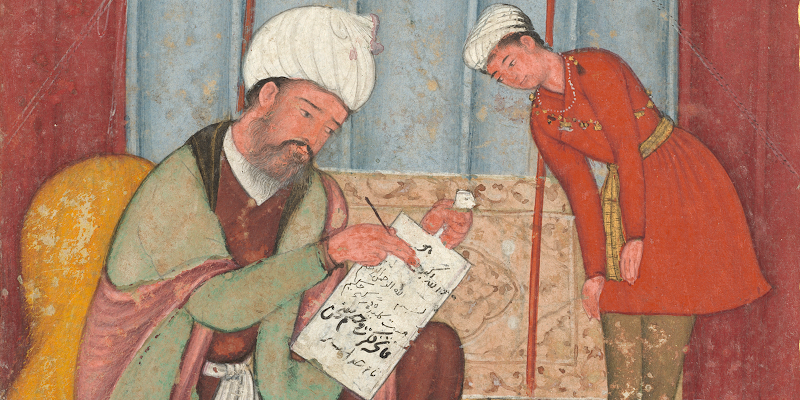
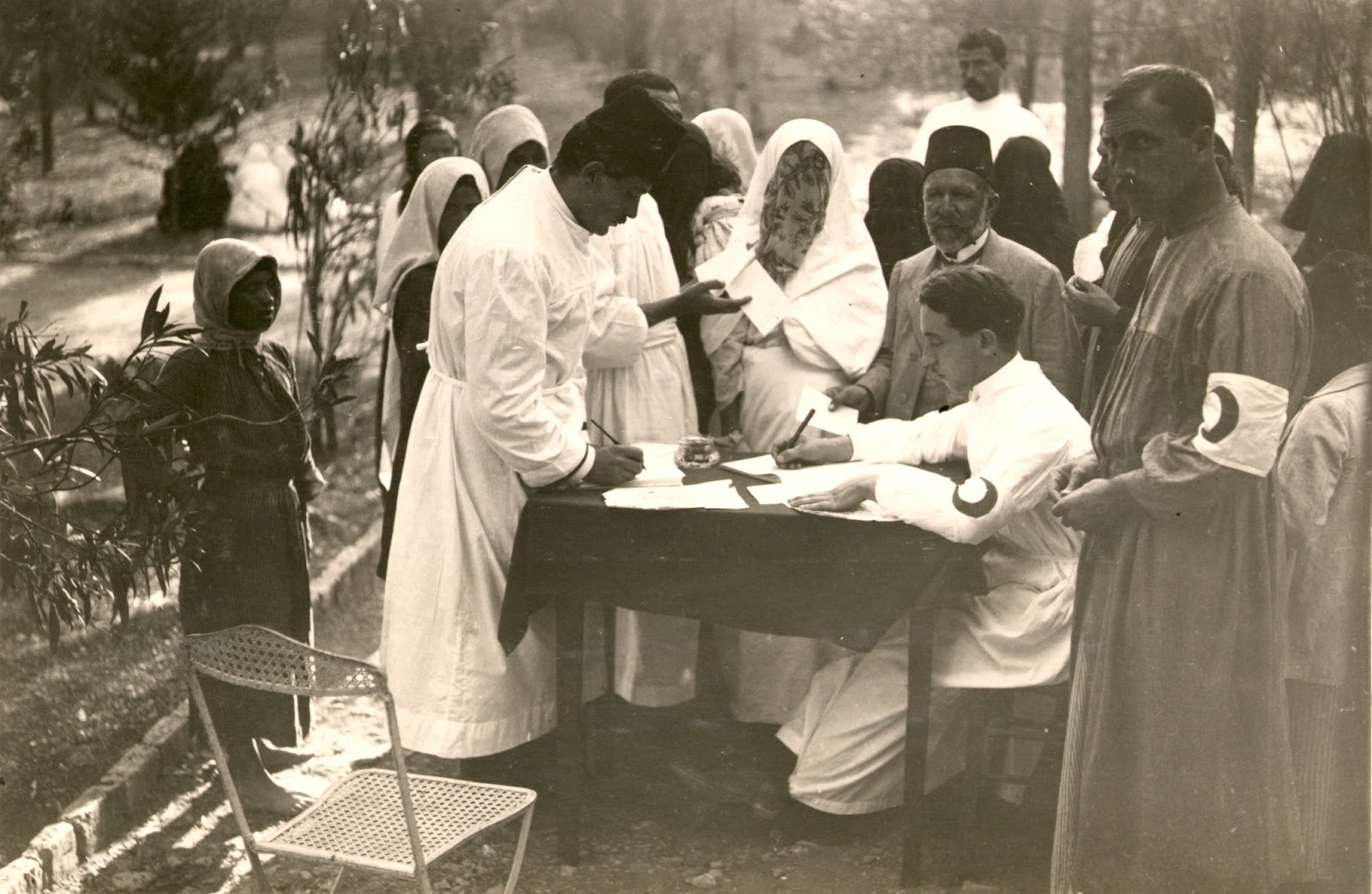
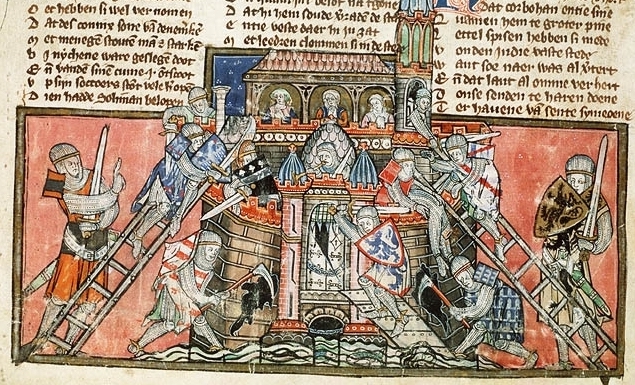


Comments
Post a Comment
Due to an overwhelming amount of spam, we no longer read comments submitted to the blog.